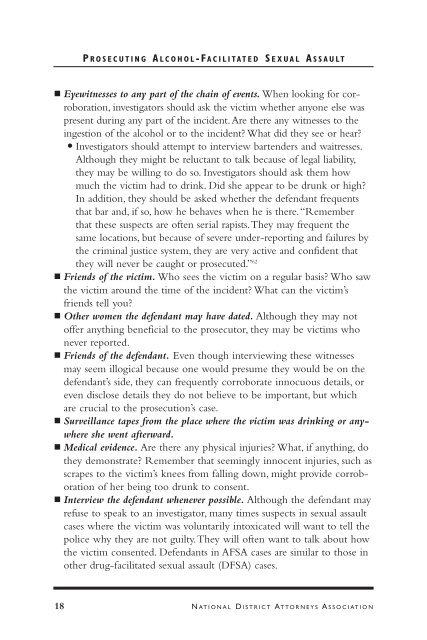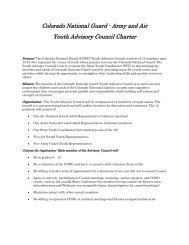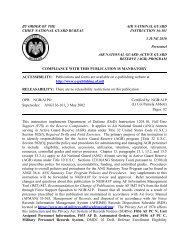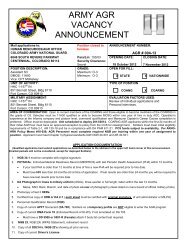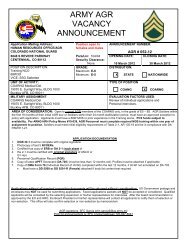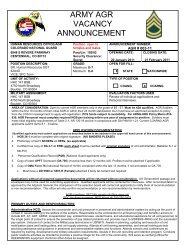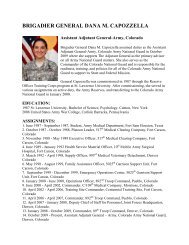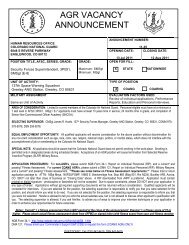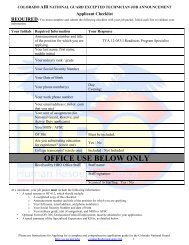Prosecuting Alcohol-Facilitated Sexual Assault - National District ...
Prosecuting Alcohol-Facilitated Sexual Assault - National District ...
Prosecuting Alcohol-Facilitated Sexual Assault - National District ...
Create successful ePaper yourself
Turn your PDF publications into a flip-book with our unique Google optimized e-Paper software.
P R OSECUTING A LCOHOL-FACILITATED S EXUAL A SSAULT<br />
■ Eyewitnesses to any part of the chain of events. When looking for corroboration,<br />
investigators should ask the victim whether anyone else was<br />
present during any part of the incident.Are there any witnesses to the<br />
ingestion of the alcohol or to the incident? What did they see or hear?<br />
● Investigators should attempt to interview bartenders and waitresses.<br />
Although they might be reluctant to talk because of legal liability,<br />
they may be willing to do so. Investigators should ask them how<br />
much the victim had to drink. Did she appear to be drunk or high?<br />
In addition, they should be asked whether the defendant frequents<br />
that bar and, if so, how he behaves when he is there.“Remember<br />
that these suspects are often serial rapists.They may frequent the<br />
same locations, but because of severe under-reporting and failures by<br />
the criminal justice system, they are very active and confident that<br />
they will never be caught or prosecuted.” 62<br />
■ Friends of the victim. Who sees the victim on a regular basis? Who saw<br />
the victim around the time of the incident? What can the victim’s<br />
friends tell you?<br />
■ Other women the defendant may have dated. Although they may not<br />
offer anything beneficial to the prosecutor, they may be victims who<br />
never reported.<br />
■ Friends of the defendant. Even though interviewing these witnesses<br />
may seem illogical because one would presume they would be on the<br />
defendant’s side, they can frequently corroborate innocuous details, or<br />
even disclose details they do not believe to be important, but which<br />
are crucial to the prosecution’s case.<br />
■ Surveillance tapes from the place where the victim was drinking or anywhere<br />
she went afterward.<br />
■ Medical evidence. Are there any physical injuries? What, if anything, do<br />
they demonstrate? Remember that seemingly innocent injuries, such as<br />
scrapes to the victim’s knees from falling down, might provide corroboration<br />
of her being too drunk to consent.<br />
■ Interview the defendant whenever possible. Although the defendant may<br />
refuse to speak to an investigator, many times suspects in sexual assault<br />
cases where the victim was voluntarily intoxicated will want to tell the<br />
police why they are not guilty.They will often want to talk about how<br />
the victim consented. Defendants in AFSA cases are similar to those in<br />
other drug-facilitated sexual assault (DFSA) cases.<br />
18 N ATIONAL D ISTRICT ATTORNEYS A SSOCIATION


